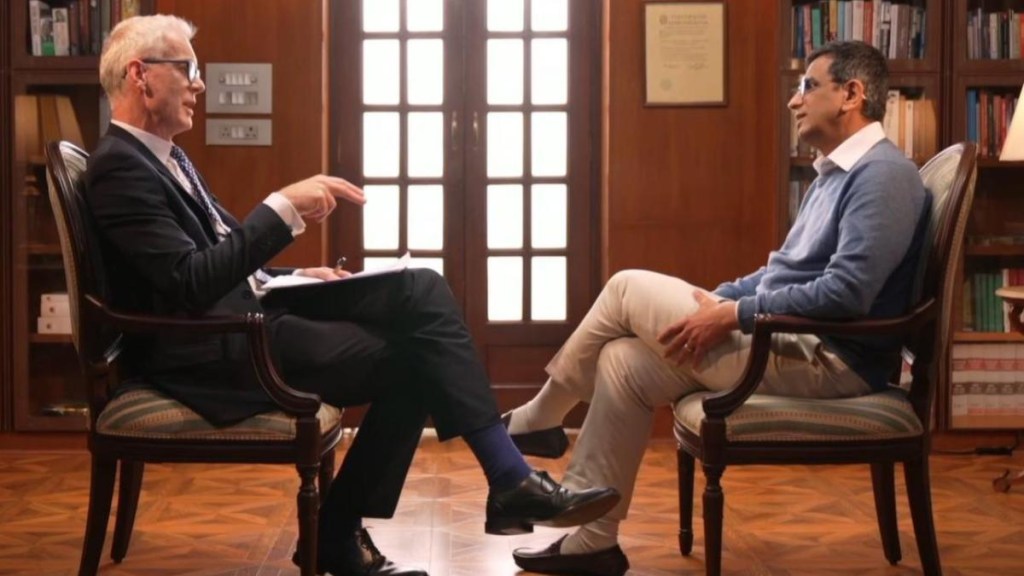Retired Chief Justice of India DY Chandrachud was on the other side of the table in a recent interview where he faced some tough questions about Indian judiciary, political pressures and his judgements, among other things.
Responding to allegations of political interference, Chandrachud denied that the Supreme Court has been swayed by political pressures. He pointed to the court’s record of granting bail to political leaders and activists as proof that due process and the rule of law remain intact.
“The Supreme Court disposed of 21,300 bail applications last year alone,” he stated. “I’m not going to name the political leaders who have been granted bail, but this just indicates that the rule of law governs,” the former CJI added.
Chandrachud emphasised that the Supreme Court has consistently protected personal liberties, sending a clear message about its independence from political forces.
Addressing concerns about Prime Minister Narendra Modi visiting his residence for a religious celebration, Chandrachud dismissed the notion that such interactions compromise judicial integrity.
“Let’s not make too much out of elementary courtesies between high constitutional functionaries,” he said. “Our system is mature enough to understand that these courtesies have nothing to do with the way cases are decided.”
He further shed light on the landmark rulings, such as striking down the electoral bonds scheme, which were delivered before this meeting. Other judgments unfavorable to the government have also followed, he noted.
Defending the Supreme Court’s decision to uphold the abrogation of Article 370, Chandrachud said the ruling aligned with the Constitution’s original intent.
“Article 370 was introduced as a transitional provision,” he explained. “At the birth of the Constitution, the assumption was that what was transitional would eventually fade away and merge with the overall text,” he added.
Rejecting claims that the court succumbed to majoritarianism, Chandrachud pointed out that the Supreme Court had set a deadline for elections in Jammu & Kashmir by September 30, 2024.
“A democratically elected government is now in place, and there has been a peaceful transfer of power,” he said.

